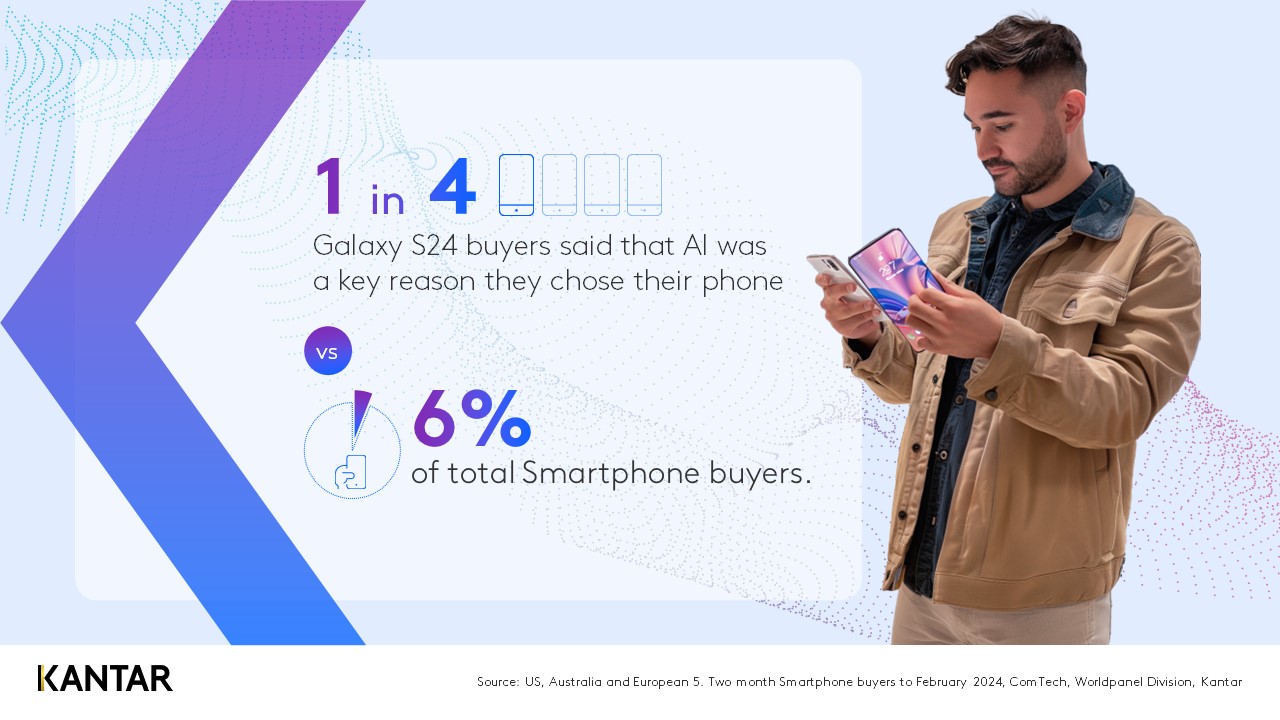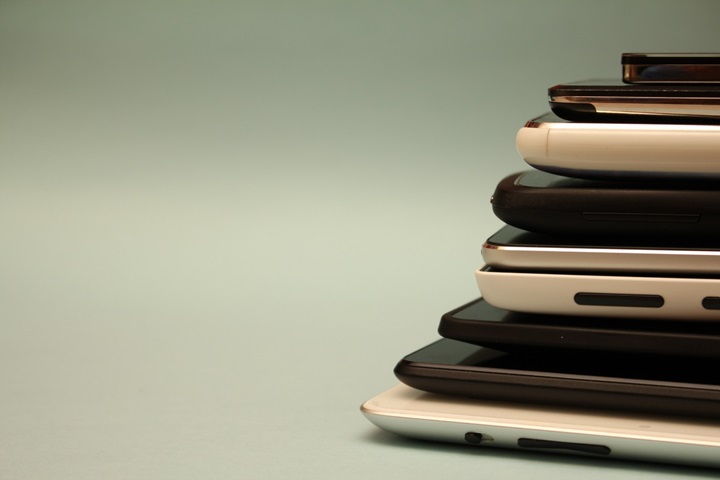Smartphone brands like Samsung and Google that successfully market ‘halo’ artificial intelligence (AI) features in their devices can influence consumer behaviour. This is according to the latest Worldpanel ComTech study from Worldpanel, which began tracking AI as a driver for smartphone purchasing across its global markets in February 2024.
When leading smartphone brand, Samsung, announced that its new flagship Galaxy S24 series would be ‘Powered by Galaxy AI’, it promoted a range of AI features ahead of the device’s latest hardware, think camera and screen capabilities, during the launch event. According to Worldpanel ComTech preliminary data across European 5 (France, Germany, Great Britain, Italy and Spain), US and in Australia (to February 2024) this marketing strategy is already influencing consumer behaviour.
One in four Galaxy S24 buyers said that AI was a key reason they chose their phone (27% amongst Australian buyers) compared to 6% of all smartphone buyers. Among this group, 28% wanted real-time translation, 24% wanted camera enhancements and 17% wanted ‘circle to search’ (where an image is circled to trigger a web search) – all features that have been heavily marketed by Samsung ahead of and during the launch.

Google also announced a range of AI features in its latest Pixel 8 range, with its 2024 Superbowl advertisement promoting ‘Guided Frame’, an AI-generated audio cue to help those who have poor visibility when taking photos. Data shows that this has had an impact on consumer motivation, with Pixel buyers over-indexing citing AI as a preferred feature over a normal smartphone.
Commenting on the data, Jack Hamlin, Global Consumer Insights Director at Worldpanel Division, Kantar, says: “As more smartphone manufacturers develop, embed and successfully convince customers of the benefits of generative AI, we will start to see a shift in consumer awareness and behaviour. Whether AI will drive greater sales volumes is not yet clear, but consumers motivated by AI functionality will behave differently when buying a new device. What we could start to see is manufacturers packaging exclusive AI features into subscription offers, charging consumers to access them and building a new revenue stream.”
Apple, which developed and embedded its own AI neural engine as far back as 2017, is yet to embed and promote ‘halo’ AI features in its devices. Voice assistant Siri learns a user’s behaviour and provides ‘smart prompts’, while the camera application can identify people and pets in photos, yet most consumers are unaware that these are AI powered features. This is reflected in their behaviour, with recent iPhone buyers under-indexing -85 when seeking AI features vs the average smartphone.
Will AI-powered innovations convince smartphone consumers?
Much as the gen AI hype, which started when ChatGPT creator, OpenAI, released its generative AI chatbot back in 2022, has driven global stock markets to record highs. With smartphone sales volumes remaining down versus pre-pandemic level at 30%, manufacturers are hoping that the technology will give sales a lift.
Kantar's Hamlin adds: “Educating consumers about AI features and the benefits they could bring can influence decision making. But the question is whether consumers would purchase their handset anyway, and AI features only offering a residual benefit? With iPhone sales at a record high in most markets, Apple’s decision not to rush into AI doesn’t appear to be affecting sales yet. It will be interesting to see how this plays out”.
Kantar will continue to track the impact of AI on consumer behaviour across its global longitudinal panels, providing insights into successful AI product innovations, AI motivated consumers, and OEM winners and losers. It will also help answer the question of whether a raft of new software innovations powered by AI convince consumers to buy. Perhaps unsurprisingly, ChatGPT itself believes so: “Yes, new software innovations powered by AI can certainly influence consumers' decisions to buy smartphones”.


